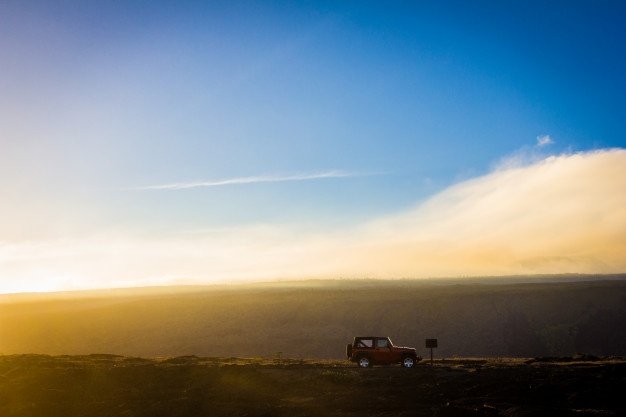Does Car Insurance Cover Off-Road Driving?

One of the reasons people buy cars is to enjoy long road trips and drives. There’s something so therapeutic about driving through scenic routes, quiet countryside roads and highways without traffic. But beyond regular road trips, there’s a certain thrill that comes with driving in uncharted areas. It is a feeling that cannot be explained but only experienced. These adventures are called off-road driving, popularly referred to as off-roading.
While off-roading may be enjoyable and make for some interesting and amazing memories, there are certain risks associated with it that can lead to injuries to you or damages to the car. Some of these risks include poor visibility, vehicle breakdown due to bad roads, punctures, accidents, and so on. So, if you are to venture on such journeys in the near future, it is best for you to be prepared in advance. Let us take a look at what constitutes off-roading and the protection your insurer offers for the same. Read further to know more.
Table of Contents
What Constitutes Off-Road Driving?
Off-road driving is when you drive your car on natural paths like mud paths, rocky areas, sand dunes, snow-covered lanes, river beds, gravel, etc. While most people drive off-road for fun as a part of an adventure sport, others may want to go exploring or take the route by accident. Off-roading is generally a fun and recreational activity that is conducted by many trekking and adventure sports groups these days. However, you need to be sure you and your car are protected completely before you indulge in it. Off-roading includes sub-categories such as dune bashing, desert racing, rock racing, cross-country, green lining, rock crawling, mudding, mud plugging, etc.
However, it is required that the hole was not apparent with ordinary care and that the driver shows that he did all possible to prevent the collision, including adhering to speed restrictions and using prudence. If the off-roading was caused by a sheet of ice, the entity is only accountable if it did not remove it in a fair amount of time.
Does Car Insurance Cover Off-Road Driving?
Generally, car insurance policies are of two types – third-party liability (protection for you and your insured vehicle against any liabilities caused due to any damages or losses suffered by a third-party – person or property) and comprehensive insurance (protection against third-party liabilities; and damages and losses incurred by you and your vehicle). However, in case of coverage for off-road driving, you need to contact your insurer and find out for sure if you are adequately protected.
If you’re wondering if insurance coverage is required for off-road driving, such as on dirt roads, the answer is that the law only requires insurance coverage for circulation on public roads or places.
Also Read: Quick Tips To Know Before Making An Insurance Investment!
Do You Need Car Insurance for Off-Road Driving?
Car insurance has been made mandatory by law for vehicles on the road. However, your car insurance policy generally does not provide any coverage for adventure sports and racing, etc. But, your policy provides coverage for accidents, based on the type of policy taken. So, with comprehensive car insurance in place, you can enjoy the benefits of your own damage and keep you and your insured vehicle protected.
That instance, if a driver causes an accident without the involvement of other vehicles and there are other persons on board, his insurance must cover any harm caused to passengers. However, there is no reimbursement for the driver because the civil liability policy covers the owner of the automobile, as well as any other motor vehicle, entirely from any losses caused to third parties during circulation due to his own fault. And not from the ones he’s gathered for himself.
What does it mean to say that a roadway is open to the public?
The law has determined that a road is for public use if it is available to an endless number of individuals, i.e., if all parties other than the owners of the land can legally access it (owners, tenants etc.)
Clearly, nothing prevents an individual policy from extending insurance coverage to areas (such as private, closed-to-the-public areas) where there is no legal requirement for vehicle insurance coverage (however, such a clause will have value only between the insured and the insurer and will not be operative against the insurer of the injured party).






